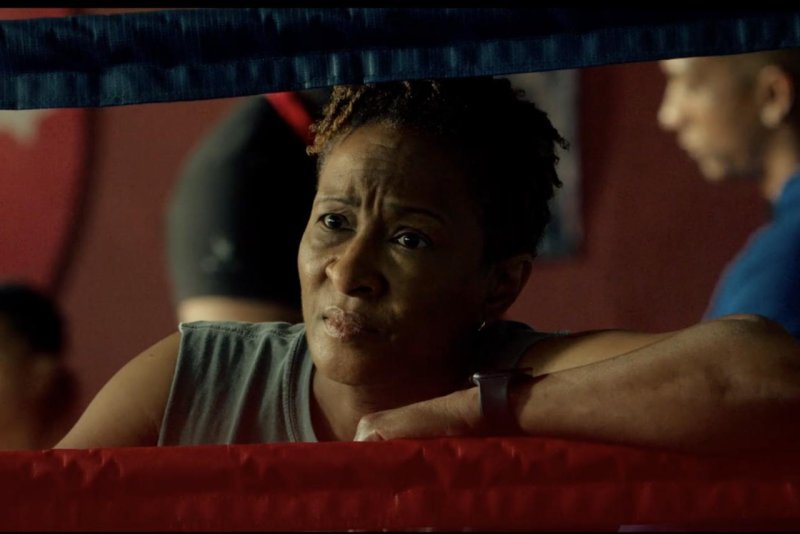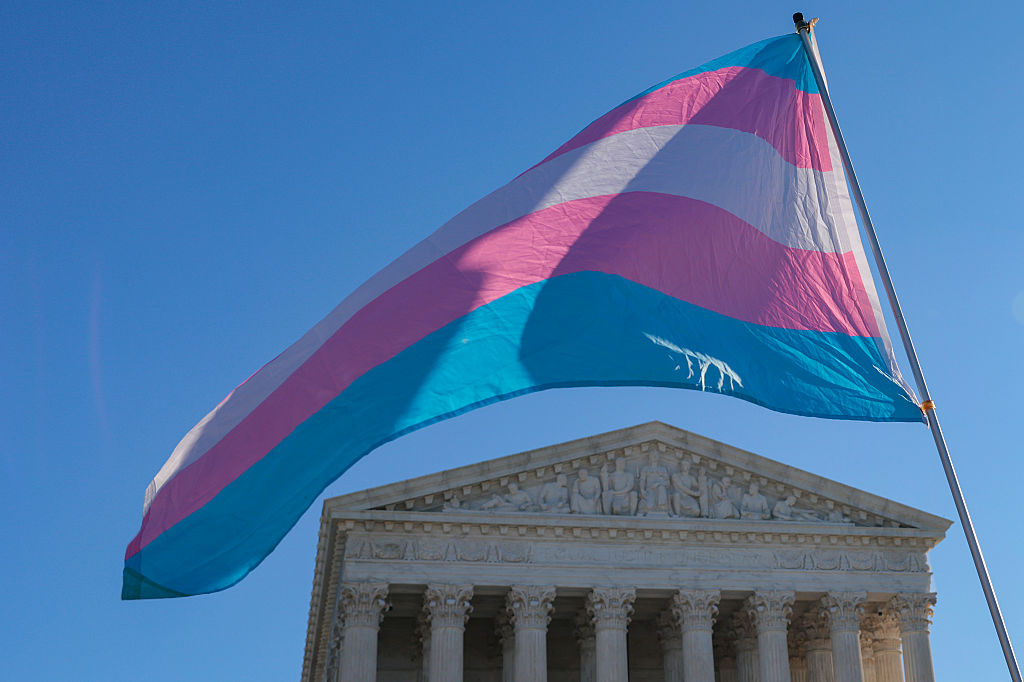How India’s Healthcare System Lets Down Trans Men

“People are scared to go to the hospital because of how badly they are treated.”
When Aryan, a 32-year-old trans man based in Mumbai, went to get his weekly testosterone shot during lockdown, he was turned away from the doctor’s clinic. His regular doctor was around, and her partner, who was insensitive to him at the best of times, insisted that he should not come back. She claimed that she had strict instructions not to treat anyone unless it was “essential” — as far as she was concerned, that meant only people who could potentially be infected with the novel coronavirus.
Aryan began taking testosterone injections as part of his gender affirmation process recently. “I told her it may not be essential for you, but for me it definitely is. I have to take it every week; how is it not essential?” he says.
Aside from having to navigate the stress of protecting himself from the coronavirus, he was forced to start looking for a new clinic that he could access in lockdown, putting him further at risk. This caused Aryan so much anxiety that, although he is afraid of needles, he started asking friends how he could give himself the T shot.
If the doctor in question at his regular clinic had been sensitive, all of the anxiety and risk involved in finding someone new could have been avoided.
This is just one of the ways in which unprecedented social and political developments like the pandemic impact trans and queer people in adverse ways.
But there is a deeper problem at hand. Even at the best of times, trans men don’t have access to sensitive healthcare.
In conversations with six men across India, I found out that each had experienced gender policing and surveillance, making it difficult for them to access healthcare they could trust.
This is despite the fact that, in 2014, the Supreme Court of India passed a celebrated judgment affirming the fundamental rights of transgender people in India. One of the key aspects of this ruling, colloquially called the NALSA judgment, was the self-determination of gender identity. This meant that under the law, people would not need any intervention from any gatekeepers, including doctors or mental health providers, in order to simply identify as themselves.
But in reality, six years later, in the country roiling under a religious right-wing government, trans, intersex, non-binary, and gender non-conforming people have not seen the benefits of this progressive legislation.
Instead, the government passed the Transgender Persons (Protection of Rights) Act 2019, despite widespread protests from trans rights collectives and activists.
The Act introduces provisions that range from inadequate to actively harmful. To give just two examples, it violates the principle of the self-determination of gender identity by including gatekeepers in the process, such as a district magistrate who is authorized to give a transgender person a certificate of identity. The provisions on abuse against transgender persons include imprisonment between six months to two years, while violence against cisgender women can include much longer terms of imprisonment.
Human Rights Watch criticized the law, saying it “isn’t worth celebrating,” and that “India can — and should — do better.”
Before this law was passed in December 2019, the government introduced a series of bills that directly violated the NALSA judgment on a number of counts, and despite detailed feedback and calls for wider and more comprehensive public consultation with trans and gender-diverse communities in India, did not end up passing a law that does justice to the landmark Supreme Court judgment.
This is especially disturbing in a context where transphobia is rife.
From the family to institutions like schools and colleges to workplaces to public spaces, the police and courts, people who identify as or are perceived as being non-normative in their gender identity or sexual orientation face violence and discrimination. And because life — and identity — is never restricted to one thing, they may experience even more violence based on other factors, such as their caste or class location, religion, or disability.
Gender segregation
It is in this broad context that the following conversations occurred.
While these interviews are in no way representative of the diverse experiences of trans men in India, they provide a glimpse into some issues that obviously occur directly as a result of stigma and surveillance.
One of these forms of surveillance is in the form of gender segregation and policing from other patients, as well as healthcare professionals. It leads to the erasure of trans identity, as well as having a direct impact on access to healthcare.
When Aryan went to get his Gender Identity Certificate, he found that the government hospital he went to was tremendously insensitive. “They misgender you, they call you by your dead name, they interrogate you about what you want and why you want it,” he says. Aryan faced this kind of behavior until they asked him what he did. “When I said I’m a clinical psychologist, their tone changed,” he says. They became much more respectful, stopped misgendering him and assured him he’d be with a psychologist in ten minutes. While the appointment went well — since the psychologist he was assigned was sensitive and respectful — their assistant was not.
When Alex, a 30-year-old man from Imphal goes to his local hospital for an appointment, he has to queue up to get a ticket. He would have no problems queueing up, except that the queues are divided up based on the gender binary — either “male” or “female.”
“If I join the male queue, some men keep staring at me. They wonder aloud whether I am a man or woman,” he says. “And if I join the female queue, the women ask me directly whether I am a man or woman.”
For Piku, a 28-year-old trans man from Kolkata, his memories of being hospitalized two or three years ago because of a bad case of jaundice are punctured by memories of similar treatment. They put him in the female ward. “I felt like I was in the middle of a zoo,” he says. “All the women were gaping at me, as though they were looking at some kind of strange animal.”
Discrimination is, of course, not limited to other patients and manifests itself in the behavior of medical professionals.
Alex reports a number of discriminatory comments he has received from doctors he has gone to for treatment. “‘Why do you want to be a trans man? Live as a woman, why do you want to ruin your life? Live your life the way everyone else lives. Do you want to be single? As a trans man, women will only come to you for money.’ This is the kind of thing most of the doctors I’ve been to have said to me,” he says.
As a result, he’s very reluctant to go to a doctor even when he feels unwell. He has a supportive aunt in the family with whom he prefers to go if he absolutely must, but mostly, when he is ill, he calls her and asks her advice on what medicine to take, which he buys from the pharmacy for himself.
Even when gender identity is not erased, it is still surveilled and has to be constantly negotiated. This can take the form of the patient having to constantly “train” medical professionals on how to approach his gender identity and incorporate this into their approach to his treatment.
Aditya, a trans man based in Mumbai, found that he had to continuously train the doctors and medical technicians he was dealing with on his gender identity. Aditya lives with an autoimmune condition, for which he has had multiple operations.
Before he got his top surgery, there was a period during which Aditya’s surgeon seemed receptive to affirming his gender identity. But after a surgery related to his condition didn’t go as expected, Aditya says, everything changed. “He started blaming my transness — and the decisions I was taking because of my transness — for my worsening health. He just became totally non-accommodating,” says Aditya. “I went through that phase of surgery, and then I never went back to that hospital again. Then I found a new doctor and a new hospital, and the whole process of training them started again.”
Even at this new hospital, Aditya was asked to wear a gown meant for women, which would have badly triggered his dysphoria. There was also the question of who would shave him before surgery. Aditya was not comfortable with a man shaving him, so he had to explain his identity all over again, this time to the women nurses. “So you have to tell them what a trans man is,” he tells GO. Ultimately, Aditya did not have to wear the gown, but he describes the process of fighting for this as being exasperating.
Access to gender affirmative procedures
In some cases, access to healthcare and the right to bodily autonomy was expressly denied by healthcare professionals or severely compromised.
Alex found that some doctors he approached for hormone therapy were simply unwilling to treat him and denied him care. “I went to a private hospital and I told the doctor that I want hormone therapy,” he says. “He asked me what this was. After I explained what it was, he said ‘I don’t know anything about this, go to someone else.’” Even when he did find a doctor willing to treat him, Alex had to bring his mother along two or three times before he was cleared for the psychiatric counseling that is mandatory before hormones can be administered. Even though this is an illegal practice, Alex reports that this particular clinic in Imphal requires the “permission” of trans men’s parents before they are given hormones, even if they are adults.
Aryan, too, had a similar experience. As part of getting his Gender Identity Certificate, the psychiatrist who was meant to sign off on it also asked Aryan to bring his parents along. He challenged her on this and asked her if she knew about the NALSA judgment. “She had no idea about it. There was zero knowledge on gender and sexuality, zero knowledge of intersections. The medical system is the worst system to go through. People are scared to go to the hospital because of how badly they are treated.”
Another serious barrier to seeking hormone therapy and gender-affirmative surgery is a gap in access to health-related information, which directly relates to concerns around gender policing. After much searching, Alex only received adequate information about this surgery from a senior doctor he was introduced to by a friend. But BJ, a 26-year-old trans man from Kolkata, says he has struggled to access this information at all. The doctor at the clinic he has been going to for hormone therapy does not give him enough time to answer his questions. He has asked the doctor for his number and offered to pay him to see him in a different chamber, but the doctor has denied this increased access.
In trying to gain access to information, in many cases, participants found their right to informational privacy being violated by healthcare providers. BJ spends a lot of time online looking up the impact of hormone therapy and top surgery on his body, but he still has a lot of questions. “The doctor I am going to should give me a demonstration of what will happen to my body during and after surgery. Why should I have to scour the internet for answers? Why, then, am I going to the doctor at all?” he asks.
The other major problem with the clinic is privacy. There is a line of patients waiting to see the doctor even as BJ is talking to him — and they can all hear every single word of the conversation BJ is having with the doctor. This becomes especially unsafe because the other patients are not trans. “When a woman is pregnant and goes for a check-up, it’s not like ten men are standing right behind her while she’s trying to consult the doctor, right? The doctor will make sure she gets a thorough physical examination, to make sure everything is alright. Then why is this not the case when I go?”
BJ is nervous about receiving hormone therapy, too. He has seen online in multiple videos that the best way to receive hormones is in the thighs. But when he tries to have a dialogue about this at the clinic, the practitioner tells him that injecting his waist will have the same impact as injecting his thigh. “I don’t think they know what they are doing,” he says. This compounds the hesitation he already feels about going to the doctor as a trans man.
Even when conversations with doctors happen, they can result in uncomfortable questions. For example, BJ was asked questions like how he has sex with his girlfriend.
Rohan, a 34-year-old trans man based in a small town outside of Bangalore, reports a similar experience. At the time that Rohan sought hormone therapy, the Karnataka government required that he go for counseling for a period of 2 years and 3 months. As a result, Rohan had to do 13 sittings with a counselor over two and a half years. Rohan found the experience difficult because some of the questions were intrusive and made him feel very uncomfortable. “He asked me how I have sex with my partner. He had asked me other questions around body language, sexual orientation, toilets … but I was irritated by his questions about how I have sex, and I fought back,” he says. “I didn’t want to answer, and I fought back for two days. I told him this is my sex life with my partner — it is my personal issue. I questioned the doctor every time I did not agree with his questions.”
Rohan lives with a physical disability, so another issue with going to the doctor is accessibility. The doctor’s office could be on the second floor, in a building without a lift. Even when an accessible doctor’s office is available, there is no guarantee of gender affirmative treatment. “Some nurses have asked me why I have removed my breasts,” he says. “Either the doctor or other medical staff doesn’t understand that I am a trans man.”
Like BJ, Aditya has never had a doctor give him detailed information. He is used to looking at the words in his file and scouring the internet for answers to his questions. “They just don’t give information. At some level I think it is because I am trans; they think I won’t understand,” he says. “If it was somebody else talking to them on my behalf, maybe they would give them more information. But I haven’t had any caretakers, so I don’t know how that dynamic works — I just know they don’t give me anything at all.”
These issues of access can make already expensive and difficult procedures even more fraught. Piku, for example, knows that he will have to leave the family home permanently once he starts taking hormones and then goes for top surgery. This is despite the fact a supportive aunt has been telling his mother to let him be who he is and to accept his trans identity. His family is alright with his gender identity as long as other people in the extended family and neighborhood don’t realize that Piku is a trans man. The presence of facial hair and other physical changes once he starts hormone therapy or has surgery will mean that he will be unwelcome in the home. “Even if I come here, I will have to shave,” he says. “And it will have to be for very short visits.”
Most of the information he receives about hormones and surgery is from friends of his who are also trans. This was true for BJ (although he also spends a lot of time online looking for information) and Alex. The trans rights collective that Alex is part of is actively organizing around the issue of access to healthcare and seeks to sensitize doctors and other healthcare professionals about treating trans people.
Almost every trans man I interviewed ultimately found his doctor through a trusted contact in the community.
Assumptions about surgery
Everyone I interviewed said they did not want bottom surgery. This runs counter to assumptions and provisions made in the legal act (purportedly for the protection of the rights of transgender persons) that link identity with surgery.
“Transition is a personal process,” says Aditya. “Not all of us want all the surgeries. I don’t want bottom surgery because I’ve never felt dysphoric about it.”
“Of course, I will have some limitations; like, if I go for surgery, only a woman will shave me and not a man. That’s because I don’t feel safe with cis men,” he adds. “Very few trans men I know of want bottom surgery. … Those of us who can afford to are happy buying packers and stand-to-pee devices.”
BJ is irritated by assumptions he receives linking bottom surgery with sex. “My previous partners were not unsatisfied by our sex life. My current girlfriend, too, really enjoys the sex we have together. She does not feel that I need to have any surgery, … and I am also very satisfied,” says BJ.
Rohan didn’t want to undergo any surgery at all but decided to go for top surgery after speaking with his wife and mother. “I could not take off my shirt in some public places, and this was challenging. Sometimes when I traveled and went to temples, this became a problem,” he says. “My wife has been with me for 15 years. If she had wanted a cis man, there are so many out there — but she chose me. This is my personal experience, I am not speaking for other trans men, but I don’t like the option of bottom surgery for myself,” he adds.
Aditya also had a deeply disturbing experience with his surgeon around top surgery.
The practice of binding his chest had worsened his existing autoimmune condition, and the first time Aditya had to go in for this set of surgeries, it was understood that he would not be able to bind once it was done.
However, not binding his chest would cause significant distress to Aditya and disrupt his life, as he would not be able to meet anyone in person without binding first. Aditya’s solution to this was that he agreed to have the procedure only if it was accompanied by top surgery. The surgeon agreed to this condition, but in the operation did not keep his word. Despite doing the other health procedures that Aditya required, he did not do the top surgery. “To him, other aspects of the surgery were more important because they were life-saving. But what he did not realize was that for me, the top surgery was equally life-saving, because without it I would have just gone ahead and bound again and gotten into the same trouble,” he says.
When Aditya confronted the surgeon, there was no apology for the breach of trust. Instead, he was blamed. “He turned the whole thing around on me and said I have a mental illness. He said I lived in an alternate world, [that] what I consider important is actually not that important, and that what was important was to protect my heart to save my life. He said I was alive because he took the decision he did. He told me that I am crazy and I don’t know what I am talking about.”
At this point, Aditya found himself angry and alone since he could not call his friends to see him in person because he had dysphoria. He got discharged against his doctor’s advice. “I was prepared to actually die because I won’t get any post-operative care, and I can’t call anyone. No other doctor knew my history, and I was in no condition to go and visit doctors.”
During these lonely and difficult days, Aditya was alone at home with only phone calls to a few friends for company. After five or six days, once he was not in as much pain, he started looking for solutions online and found a couple of plastic surgeons who said they could do top surgery. However, when he reached out to them, they said they would not operate on someone who had so recently already had a surgery.
“I told them that I am willing to sign whatever paper you want to protect yourself, I am an adult and this is my decision,” he says. “Nobody else could grasp how important this decision was for me, including some of my friends.” His friends wanted him to wait to have surgery, but what they did not understand was that this would mean living in isolation for six months, during which he would not be able to bind his chest either. “I couldn’t even face myself in the mirror if I wasn’t bound, that’s how bad my dysphoria was.”
Finally, Aditya found one doctor who was willing to take this on. That doctor came over and discussed the surgery with Aditya, and the next day, finally, Aditya had a successful top surgery operation. This was life-changing for Aditya because his dysphoria around his top was intense. A few months later, Aditya started taking hormone therapy to address the rest of the dysphoria he was experiencing. He also started his legal transition, and now has documents in line with his gender identity.
However, Aditya acknowledges that, despite these difficulties, many things have worked out the way they have because of certain social locations he occupies. “I have only gone to private hospitals, because I can afford to. … I am upper caste, upper-middle-class, English speaking, and now even male-appearing,” he says. “In large cities like Mumbai, there are hospitals that are trying to be gender reassignment clinics, where international patients can come. As long as you can afford to pay, private hospitals are happy to make exceptions for you.”
Solutions
Alex says that medical students urgently need to study and understand the issues about gender identity and sexual orientation so that they can sensitively care for queer and trans folks. Some people he knows are struggling because neither their families nor healthcare providers have understood their issues or supported them. “I am worried that a lot of the trans men I know have contemplated suicide,” he says. “Two of my friends have committed suicide — both because of mistreatment by their families.”
Aditya feels that hospitals should have social workers trained to sensitively handle gender issues. He knew a trans man who was living with cancer. “His family, [who] admitted him to a hospital, was not okay with his gender identity. This was a different level of difficulty because he could not negotiate for himself; his family was negotiating for him,” he says. “There was a stroke of luck because there was a doctor in that hospital who was a trans man who made accommodations for him, but that was completely arbitrary.”
Aditya feels that these social workers should be trained or that a similar department in the hospital needs to be set up that can deal with these kinds of accommodations. “It is really draining when you are in extreme physical pain and already scared and lonely, when you don’t know what is happening to you, to actually have to explain that you are a trans person and they need to be treating you in a certain way. There needs to be somebody who is aware and whose job it is to do these negotiations on our behalf. It is unfair to expect the patient to do it.”
Piku feels that Kolkata’s first clinic exclusively for transgender people at Peerless Hospital is a step in the right direction. “If I go to any doctor other than my family doctor right now, none of them will accept me as trans,” he says. “It’s because of these things that I have so much hesitation in going to the doctor.” Piku adds that he has received immense amounts of emotional support and affirmation from his friends and activists he knows.
Even while collectives and communities continue to be a source of resilience and solidarity, the state continues to let down people on healthcare — a basic human right.












